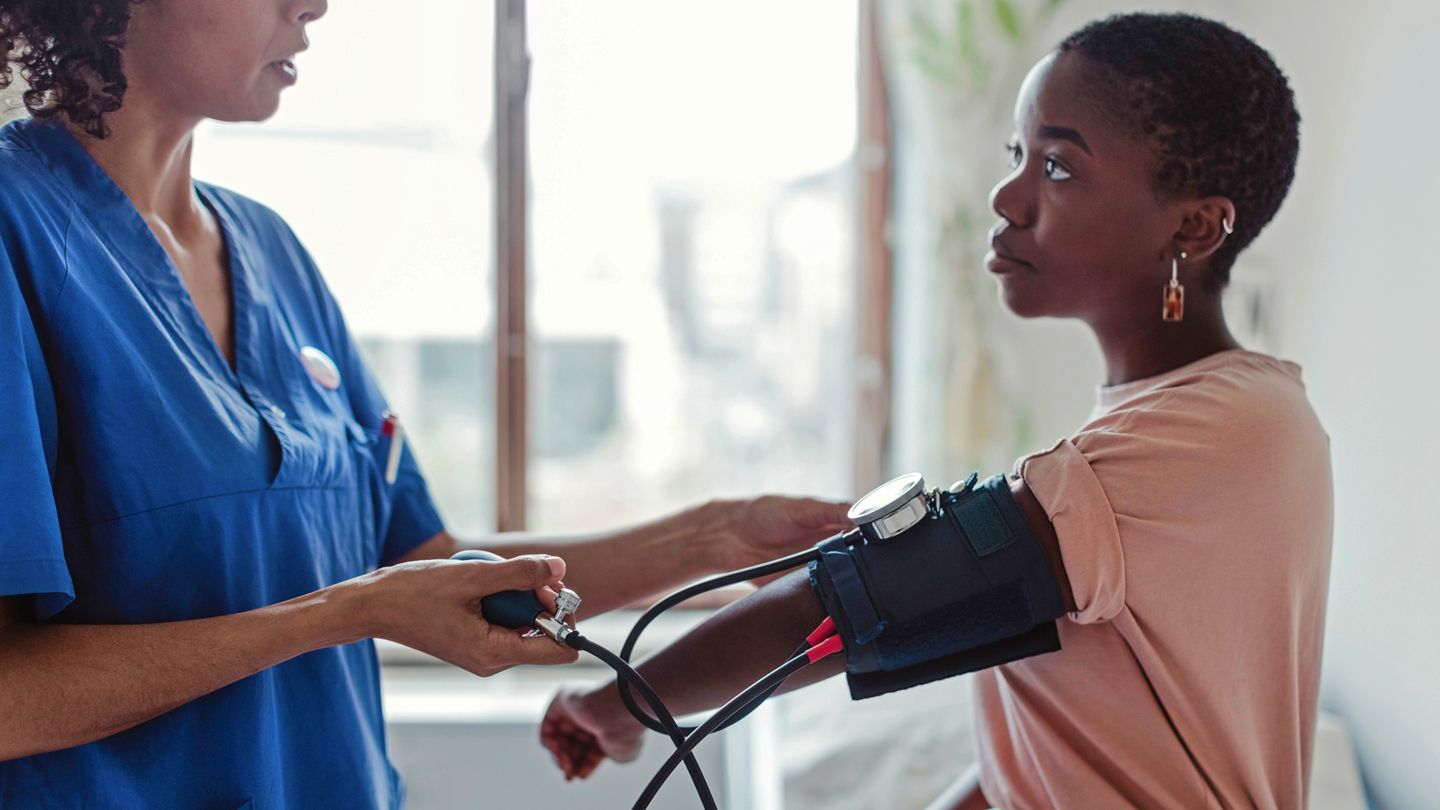Health
Hypertension: Silent Killer Of Men, Women In Nigeria

“Good health is not something we can buy. However, it can be an extremely valuable savings account”, “Health is Wealth” and “The first wealth is health.” These health quotes say a lot about the importance of good health and the need to avoid or fight bad health.
It is silent but deadly. It is common but can be serious if not treated. Hypertension like other non-communicable diseases such as diabetes, and stroke kill more people than infectious diseases. Hypertension is a major cause of premature death worldwide.
According to the World Health Organization (WHO), Hypertension also known as high blood pressure is when the pressure in the blood vessels is too high (140/90 mmHg or higher) and this pressure is mainly due to the heart pumping.
It is important to know that there are things that increase the risk of having high blood pressure which include older age, genetics, being overweight or obese, not being physically active, a high-salt diet, and drinking too much alcohol.
Blood pressure is written as two numbers. The first (systolic) number represents the pressure in blood vessels when the heart contracts or beats. The second (diastolic) number represents the pressure in the vessels when the heart rests between beats.
Hypertension is diagnosed if, when it is measured on two different days, the systolic blood pressure readings on both days are ≥140 mmHg and/or the diastolic blood pressure readings on both days are ≥90 mmHg.
WHO reports that an estimated 1.28 billion adults aged 30–79 years worldwide have hypertension, most (two-thirds) living in low- and middle-income countries. An estimated 46% of adults with hypertension are unaware that they have the condition.
The health agency also stated that less than half of adults (42%) with hypertension are diagnosed and treated, and approximately 1 in 5 adults (21%) with hypertension have it under control.
Hypertension comes in two risk factors which are modifiable risk factors, and non-modifiable risk factors. Modifiable risk factors include unhealthy diets, physical inactivity, consumption of tobacco and alcohol, and being overweight or obese. While, non-modifiable risk factors include a family history of hypertension and co-existing diseases such as diabetes or kidney disease.

An old man checking his blood pressure (Photo credit: AFP)
Hypertension In Nigeria
However, there is a growing incidence of hypertension in Nigeria. Hypertension is the number one cause of stroke and heart disease in the country. According to the World Health Organization (WHO), hypertension is responsible for an estimated 45% of deaths due to heart disease and 55% of deaths due to stroke.
According to a study conducted by James Tosin Akinlua and Co. on the Prevalence of Hypertension in Nigeria, about 55% of Nigerians are hypertensive. This means that about half the country is at risk of dying from stroke, heart disease, heart failure, and kidney disease due to hypertension. The WHO African Region has the highest prevalence of hypertension (27%) while the WHO Region of the Americas has the lowest prevalence of hypertension (18%).
The number of adults with hypertension increased from 594 million in 1975 to 1.13 billion in 2015, with the increase seen largely in low- and middle-income countries. This increase is due mainly to a rise in hypertension risk factors in those populations.
Hypertension is a leading cause of morbidity and mortality in not just Nigeria, but the whole of West Africa, and the fact that it starts out showing no symptoms puts people at an increased risk of death.
The fact that patients have no idea about their high blood pressure before it becomes severe is not unusual, it is actually the norm in Nigeria. Asymptomatic hypertension is very common in the country. Asymptomatic hypertension is a type of high blood pressure that does not show any symptoms.
Sadly, most people wait till they have symptoms before they check their blood pressure and by this time, it is mostly too late to be reversed. That is why Nigerians and other nationals should make it a priority to get their blood pressure checked regularly even if there are no apparent symptoms.
In an exclusive interview with Naija News, a health coach at mDoc Healthcare Limited, Titilayo Akinlade, said hypertension is silent but it is very deadly when it is not treated.
She added that the awareness about hypertension is on a large scale, and everyone, both young and old, should ensure to go for medical checkups to know their health status.
She said: “I believe there is awareness about hypertension is everywhere, and everyone at a point in their life had an education on what hypertension is, and how to manage it because I’ve been in a lot of awareness seminars either virtually or physically and having conversations with colleagues.
“Some people do take hypertension seriously, while others don’t take it seriously because there are a lot of myths about the disease. Some people feel it is a condition for the elderly ones, and not for young people. I have had encounters with people who are very young and they are hypertensive. I have also had cases with people under 20 years who are on routine medication for hypertension because they did not go to the hospital to check their blood pressure. A large percentage of deaths among young people are caused by hypertension. So hypertension is actually a silent killer.
“For people who know that they are hypertensive, not all of them are well educated about managing their condition. Some of them feel when they use their medical they will be fine as if that’s the only thing, while other feel they need to take herbal medication, and some of them want to appear knowledgeable and knows that checking their blood pressure frequently is also a way to help improve the blood pressure. Checking the blood pressure will tell whether the measures someone who is hypertensive is taking are working or not.
“Also another way to treat high blood pressure is lifestyle modifications which include eating a healthy diet, exercising, good sleep, and rest. Reducing fat intake and reducing red meat, eating more fish, fruits, and vegetables, and eating more white meat instead of dark meat are a few changes one can make.
“Reduce salt intake or better yet, eliminate salt completely because eating too much salt causes water retention which in turn increases blood volume and ultimately increases blood pressure. Exercising at least thirty minutes daily, 4-5 times a week positively affects the blood pressure and may prevent or reduce hypertension and its other associated diseases. These are very essential and the patients should know the required ratio of all the measures the person wants to take.
“It is advisable to quit smoking completely. In addition, reducing or eliminating alcohol intake would also help in stopping hypertension. Nobody cannot know if he or she has high blood pressure without checking it and it can spike at any time if it is not well managed. Also, it can lead to other chronic conditions such as stroke or death if not managed properly.”












